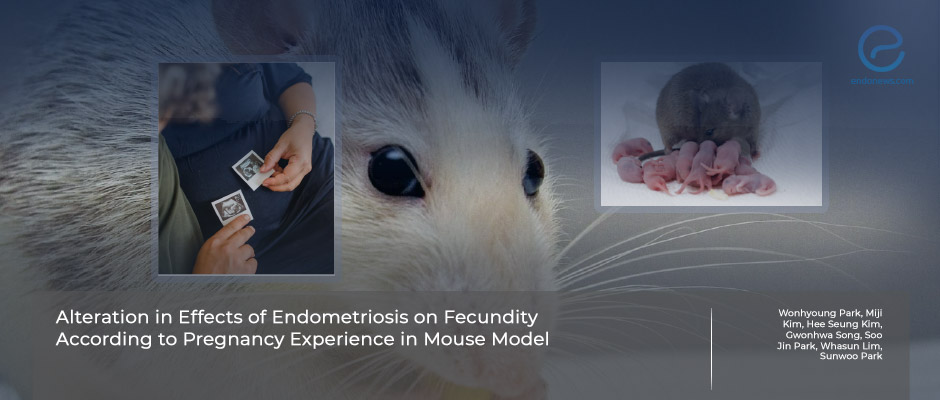Does endometrioma alter the fecundity in mice?
May 1, 2024
Endometriosis does have adverse impact on fecundity indicators including the pregnancy rate and the pregnancy period, especially for the first pregnancy.
Key Points
Highlights:
- Women with endometriosis should be counseled about decreased pregnancy rates and adverse obstetric outcomes.
Importance:
- Clinical management of endometriosis and disease-related complications should be planned considering the detrimental effects on fecundity.
What’s done here?
- This study was conducted to assess the effect of endometriosis on fecundity in female mice.
- After the establishment of an endometriosis mouse model, the pregnancy rate, number of litters, and pregnancy period, were compared with the control group.
- The main outcomes were the pregnancy rate, number of litters, pregnancy period, and survival rate of the pups.
- All fecundity parameters were compared separately in primiparous and multiparous mice.
- The size of endometriotic lesions and various indicators such as the number of litters, maternal body weight, and pregnancy period in the endometriosis group were also investigated.
Key results:
- In the endometriosis group, decreased pregnancy rate, and a shortened pregnancy period were detected in primiparous female mice.
- A significant increase in macrophage infiltration in the uterine horn in the primiparous endometriosis group was detected.
- No significant change in the number of litters and macrophage infiltration was observed in multiparous female mice.
- There was a positive correlation between the pregnancy period and lesion size in multiparous female mice.
- Maternal body weight in multiparous female mice showed a negative correlation with the size of the endometriotic lesions, unlike the primiparous female mice.
Strengths and Limitations
- The reliability of the results is the limitation for this is a small animal study,
- Another limitation is the different sizes of endometriotic lesions because the developmental time of the lesions was different.
- However, being the first study that investigates the effect of endometriosis on fecundity parameters in an animal model is the strength.
Lay Summary
Endometriotic women suffer from dysmenorrhea, dyspareunia, chronic pelvic pain, and infertility. Although the exact mechanism explaining endometriosis-associated infertility has not been elucidated, distorted pelvic anatomy, impaired ovarian function, altered microenvironment, affecting endometrial receptivity, and embryo quality have been accepted as the most common responsible mechanisms.
Park et al., from the Republic of Korea, published a study titled “Alteration in Effects of Endometriosis on Fecundity According to Pregnancy Experience in Mouse Model” in the medical journal named Reproductive Sciences. The authors aimed to identify and evaluate fecundity parameters in an endometriosis mouse model.
After the establishment of the endometriosis mouse model by allografting uterine horn tissue, the effect of endometriosis on fecundity was evaluated in primiparous and multiparous female mice. The authors found decreased pregnancy rates and shortened pregnancy in primiparous female mice with endometriosis, unlike the multiparous group. There was a significant macrophage infiltration in the uterine horn histopathologically in the primiparous endometriosis group. A negative moderate correlation was observed between the number of litters and lesion size, and there was a positive correlation between the pregnancy period and lesion size in multiparous female mice. Maternal body weight in multiparous female mice showed a negative correlation with the size of endometriotic lesions, unlike the primiparous mice.
“It is important to understand that the mouse model used in this study can reflect the difference in the impact of endometriosis on fecundity based on pregnancy experience.” the authors added.

